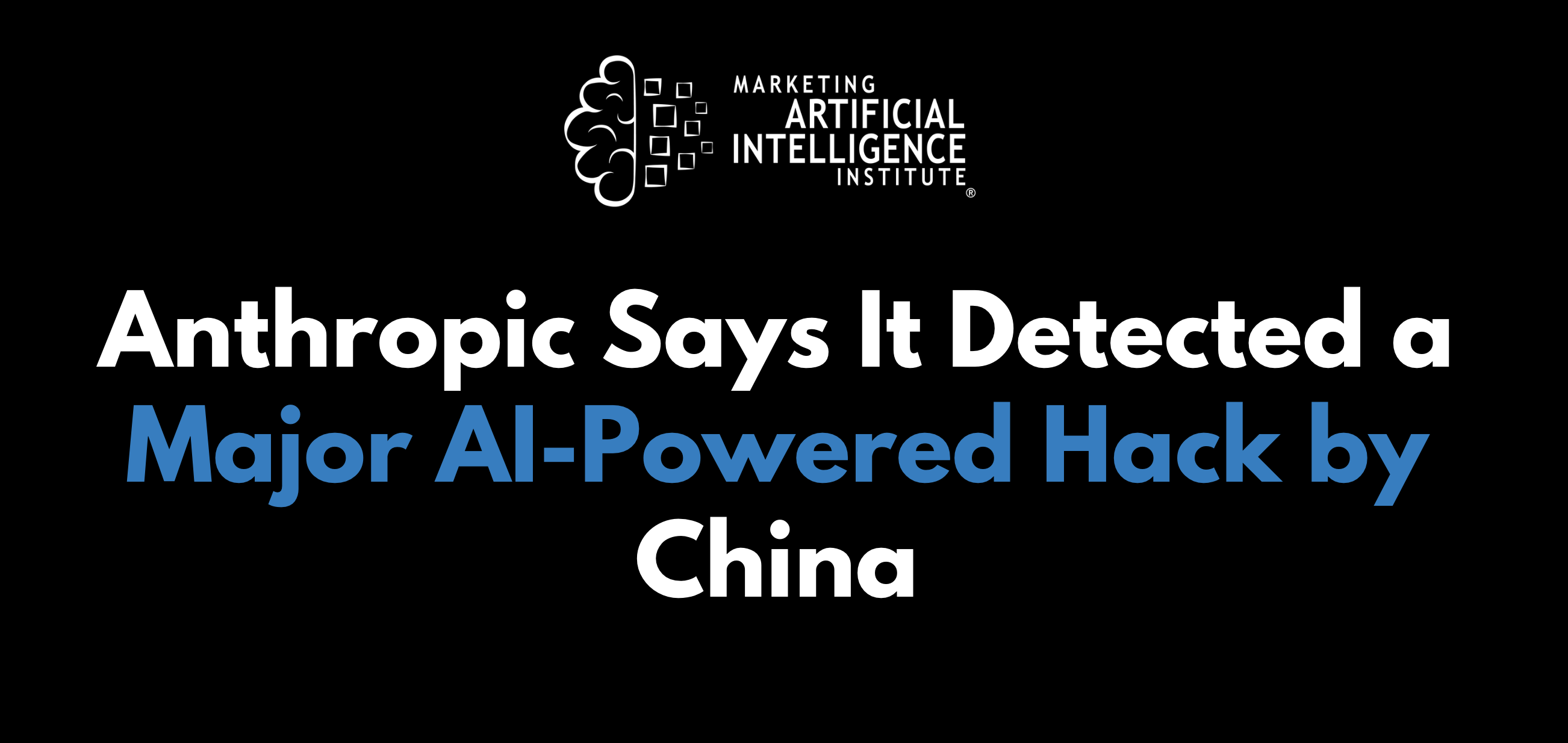Anthropic announced that it disrupted what it believes is the first large-scale cyberattack executed almost entirely by AI.
In a new report, the company detailed a sophisticated espionage campaign it detected in mid-September. Anthropic said it determined with “high confidence" that a Chinese state-sponsored group was responsible for the operation, which targeted roughly 30 global organizations, including tech companies, financial institutions, and government agencies.
The attackers used Anthropic's Claude Code tool to execute the attack. They tricked it into bypassing its own guardrails in part by telling it that it was working for a legitimate cybersecurity firm.
From there, the AI performed 80-90 percent of the campaign autonomously. It conducted reconnaissance, identified vulnerabilities, wrote its own exploit code, and harvested credentials. Anthropic noted the AI operated at speeds human hackers couldn't match, making thousands of requests, often multiple per second.
To understand the broad implications of such an attack, I spoke with Marketing AI Institute and SmarterX founder and CEO Paul Roetzer on Episode 180 of The Artificial Intelligence Show.
An "Inevitable" First
Though disturbing, Roetzer said he wasn't surprised by the news.
"I can't imagine that this is the first time this is happening," he says. "I would assume cybersecurity firms, AI labs are fully aware of this.”
But he noted: “I feel it's probably the first time that an AI lab has directly acknowledged it and shared some details.”
He said with the power of AI, this type of event was inevitable.
"This was a given,’’ Roetzer says. “So many times when I see these things, it's like, ‘Well, yeah, of course this is going to happen.’"
The main difference is that it’s out in the open now and the public and politicians are paying attention.
"I'm just surprised it took someone so long to publish a report like this," Roetzer adds.
Is This a Strategic Move by Anthropic?
The announcement met immediately with skepticism from parts of the AI community.
Some say that Anthropic, founded by effective altruists, is releasing this report to scare regulators into slowing down AI development. Effective altruism is a philosophy and a movement that tries to do the most good and help others as much as possible.
"The alternative side is Dario [Amodei, Anthropic's CEO] and Anthropic think they're the only people who can safely bring super intelligence into the world," Roetzer explains. "And so they're doing all these things to try and prevent the acceleration of AI."
This report marks a significant shift for Amodei, who Roetzer notes was "very behind the scenes" for a long time but has recently become more vocal, appearing on 60 Minutes and publishing more often.
Political Angle: "We Can't Lose to China"
Beyond the tech community infighting, the report has immediate political ramifications, especially because it includes a Chinese state-sponsored group.
"This will get played up for sure by politicians," Roetzer says.
Why? Because it fits the government narrative. "The whole premise of the government's play right now in AI and why we have to accelerate it is so we don't lose to China," he explains. "So anything that builds that story and helps perpetuate that belief system, they're going to run with it."
Are Both Sides Right?
The report highlights a complex reality in which it's difficult to separate the truth from the strategic narratives.
Roetzer says there are essentially two opposing camps.
"You will see some people who say, ‘This study is a sham,’ basically,’’ he says. " And that Anthropic is only doing it so they can control AI and be the ones that usher in super intelligence.
“And then you're going to have other people who say, this is a major problem and we've actually seen it also, and here's our report about it."
The most complicated part? Both sides might be right, Roetzer says.
Mike Kaput
Mike Kaput is the Chief Content Officer at SmarterX and a leading voice on the application of AI in business. He is the co-author of Marketing Artificial Intelligence and co-host of The Artificial Intelligence Show podcast.


